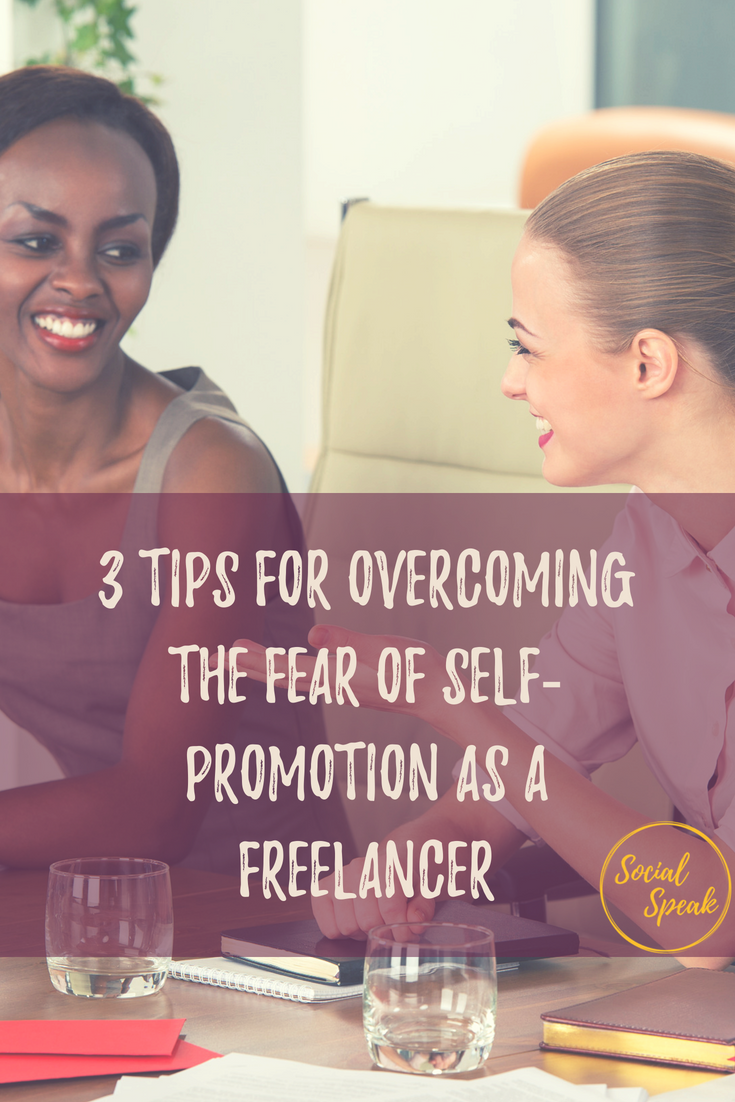Farotech is a comprehensive, growth-driven digital marketing agency that implements a systematic approach to lead generation, nurturing and conversion by utilizing scalable web design, cutting edge inbound strategies, and creative video development.
In this interview with CEO and founder, Chris Carr, we focused on inbound marketing, web design, and video marketing for the healthcare industry. We covered:
- How Inbound Marketing, Web design, and video for large orthopedic brands relate to short-term and long-term strategic marketing decisions.
- Current trends for wellness practices with SEO marketing in 2019.
- Tactics that were expected to perform well or had a lot of hype, but failed to take hold in 2018.
- The effect of video on digital marketing for healthcare.
- The top 3 things that a wellness center should be doing online to see a return from their SEM efforts.
- The top strategy that should be followed, but often marketing teams get wrong.
- Marketing strategies Farotech is currently testing that many other agencies aren’t implementing for their clients.
Please be sure to subscribe to the Social Speak Podcast for more interviews with experts in digital marketing for health and wellness businesses. To learn more about Farotech, click here.
I had a blast during this interview with Chris, and was blown away by how in depth and actionable the information was that we discussed. Some key takeaways included:
- Don’t just change your website if you think it can work better to reach the KPIs you’ve identified for your practice. Install software to create Heatmaps. These heatmaps show how prospects are engaging with your site and allow you to test different layouts and understand how design effects conversions. [6:50]
- Dive deep into your buyer personas or patient personas. Your goal is to create content that creates an emotional connection about how their life can be after they come into your practice. Cast a wide net, but also tap into individual niches. [14:23] and [27:01]
- Though you will benefit from a professional video on your homepage, lower cost, authentic videos for asset pages or pages that answer commonly asked questions about your specialties. These can then be repurposed for a variety of uses. [16:45]
- Dive into both Local and Traditional SEO tactics. First consider the commonly used, but less competitive keywords to grow your domain authority, then progress to the more competitive keywords when writing your blog content. Additionally, create and follow an editorial calendar to be more Proactive in your marketing rather than reactive. [32:11]
- Hiring a scalable team of specialists can be less expensive that hiring employees in house. [3:18]
Transcript of Podcast Episode with Chris Carr
Hello and welcome to the newest social speak podcast episode. My name’s Caitlin McDonald and I am one of the co-founders at Social Speak Network and today we are joined by Chris Carr, the owner and founder of Farotech, a Gold Star HubSpot partner. Farotech, is a comprehensive growth-driven, digital marketing agency that implements a systematic approach to lead generation, nurturing, and conversion by utilizing scalable web design cutting-edge inbound strategy, web design, and creative video development. So, let’s give Chris a warm welcome as he joins us on this podcast episode.
Caitlin McDonald: Chris, thank you so much for joining us today.
Chris Carr: Yeah, thank you, thank you for having me.
CM: To kick this off, tell us a little bit about your background in digital marketing.
CC: Well, I started Farotech in 2001, so it’s been nearly 18 years and we started out just as web development company. It was just myself and then, eventually one other individual. Now we have about 50 people working for our agency and we service companies throughout the United States in healthcare who are business to business, business to consumer, you name it. We started about 18 years ago, it started out as a web development company. And then the natural progression would be “Hey you know what, you guys create a really great website but nobody can find it.” And so we went from a web development company to really getting into SEO. And then the next progression after that was, “Hey, you create really great websites. I’m on the first page of Google, but for some reason my phone isn’t ringing, my email is not blowing up, what do I do about that?” And so we spent the latter half of the last 18 years really, talking about conversion science.
Hitting traffic at the wrong part of the buyers turning they’re not going to convert. So it was really important for us to solve the actual problem that they had not just give them marketing ease or marketing answers because that’s easy to do. The sales are down. I’m like, “Yeah but I got… Yeah, 100 Facebook likes.
CM: Right exactly, those vanity metrics aren’t going to cut it anymore.
CM: Your business, Farotech, focuses on inbound marketing, web design, and video for large orthopedic brands. Can you describe how the three of these relate to short-term and long-term strategic marketing decisions?
CC: Sure, well let me share my screen.
One of the things we try to do is, we try to really affect the hiring decision and reason why I’m saying that is that the average orthopedics practice usually might have one person who’s in charge of marketing. And when you see on the slide here, you can see my computer, correct? [3:18]
Marketing is moving extremely fast. The expectations have never been higher. Most marketing directors expect their health practice to be on the first page of Google. They expect it to be a thought leader. They expect you to have a social presence, you name it … Basically, the list goes on and on and usually what happens is orthopedics go and they hire a marketing professional or CMO or something like that, and we call that person, it’s a HubSpot term, but they call a Marketing Mary a Marketing Mary wakes up one day and realizes that all of this stuff is more than a one-person job. And so they need support.
And so what happens is, is that Mary usually finds a content writer and then they maybe tap on the shoulders of a social media vendor or something like that. All the PowerPoints and all design stuff still needs to be created. So maybe they might have a project manager doing that.
Then you have a web designer and basically you’ve stressed your web guy and everything has to look pretty with graphic design, what happens is you wake up one day and you got a lot of money going out the door. We sort of got the niche is we do what’s got a team-based solution and the team-based solution allows your marketing person to still stay in place, but we become your team behind that marketing person.
And so what happens here is with the really large or small practices need to scale, but they don’t want to hire five people to do so. So what they do is, is they hire an organization like ours that is scalable and we’re able to do all the things that they don’t have time to do.
A lot of times we bring our expertise and our approach to it, but sometimes it’s just that we have the time that they don’t have.
How does it affect the short-term, in the long term? Well, the short term is, is that we try to implement a strategy, but the long term is that we hope to be your solution to scaling your marketing team.
CM: Great, great. So providing those the quick positions that need to be filled, but also long-term growth of the team when the organization is growing as well.
CC: Yeah and then they like it because if they don’t like their writer, we can deal with it.
CM: Well let’s jump into trends. What current trends are you seeing for the health industry with inbound marketing in 2019?
Current Digital Marketing Trends for Orthopedics Practices in 2019
CC: There are a lot of trends and one of the things that I wanted to talk about is fighting the trends first and then adopting the trend second.
So usually what happens here is, let’s pretend like it a website company or a decision to basically take on a marketing campaign.
Usually what happens is that if you see you on the bottom left corner, you go and you create a really great website, right? [6:50]
Website Evolution for Orthopedics Clinics
And then what happens is, is that a lot of Orthopedic practices get really busy, and then they don’t continually evolve their website. And so a couple of years later if someone’s like, “Oh well, you know what, we really need to create a new website” and they do. Maybe two to five years later. They create another website in another website. But if you were really ask some hard questions, like What did you learn from website number one that made you decide that you needed website, number two, what about site number three?
And usually what happens is that they don’t really have a clean answer they just know that it has to be better than it is now, and obviously graphic design ages with time.
It’s pretty funny. I can look at a website and think oh look 2007. What our view is that every time you change that website or that campaign, it’s like reinventing the wheel.
But if you can basically be in a scenario, like you’re seeing here, you can develop a system and a foundation. If you look at the orange line, we recommend that orthopedic practice develop a strong foundation and then make micro adjustments along the way. learning and learning and learning and learning. And so, let me show you how we do some of that continual adjustment.
CM: And just for everybody listening to the podcast I will create a link that goes directly to this place of the video so you can see that graphic as well, so that will be down in the description. [8:20]
CC: So usually what happens here? So I go and I built that website. It’s the foundation, right?
I usually recommend that orthopedic practices put on heat mapping. This is about one of my clients, but this is their old website. You’ll notice that one of their critical buttons had no… Basically, no high balls on it. Or basically people’s mouse proofs as were going there, and they spent a tremendous amount of money and effort on these videos, but the people go into that, so they had to make adjustments, on the website and they did. Other things that I got graded on is how many appointments could I get for this organization?
You notice 15% of the audience. Did they scroll down far enough?
We do the same testing and mobile.
You look at all the clicks that they’re going to do, of a variety of different filters such as search terms. What part of the country or how long are they take to click? So the ore in a new drip marketing is going to be better to know it at 6 O’clock at night or 10 AM on a Tuesday morning.
- We look at every KPI that they do, and we basically try to make adjustments on each of the smaller goals too.
- We look at mouse movements to find out what parts of the website are confusing. We look at your forms to figure out why people aren’t converting.
- We look at pages that aren’t converting and try to create attribution pages, and then later on, we’re going talk about video, but I’ll talk a little bit about it.
- What we try to do is as we try to look at videos and we have a scale to figure out our videos too long or people dropping off at certain points.
So when you know all this usability data about your website essentially what you’re able to do is you’re able to create basically a system that if you imagine it’s like a spear you’re making this spear sharper and sharper.
Heatmaps help your practice to understand how you health center website helps you reach your digital marketing KPIs.
CM: That makes sense that absolutely makes sense. So creating new heat maps is actually something that any website can have on them. There are different apps out there, different softwares and programs out there that your team has access to and can just install a code on your website so you can start gaining traction and insights into how people are actually acting and reacting to your own website.
And so Chris, thank you so much for bringing that up. It’s so important, rather than having a new person, a new marketing director come in and say “we need a new website,” really think clearly about what those goals are and see how your websites currently performing compared to those goals. because you might be surprised that the thing that you think everybody’s clicking on not getting a single click.
CC: Yep, we’ve adjusted words on the home page and a five to 10% up-tick. Honestly, sometimes we did it by accident” on for measuring and so we’re like, “Okay good.”
CM: Exactly. And it might not work the same way the next time, but for that one center it works great.
So, you brought up video, so let’s jump into a video. Can you tell us how video effects, digital marketing and what you’re seeing with video right now?
Video Marketing for your Health Clinic
CC: Sure, well, I think the first thing you want to probably say we are using the word orthopedic practice but if you’re a healthcare and let’s just say it’s interchangeable, but I’m going to keep using that word.
So they were on a level playing field. Essentially, what you’re kind of doing here is, is that in terms of video, you need to realize that each practice is unique. So a lot of times it comes down to the quality of care, the quality of outcomes, the resources as the technology provided all that stuff. But at the end of the day if I tore my ACL I need my ACL fixed that. So one of the things that’s going to be really important is that you are not only your home page, but also your specialty pages really trying to display differentiation.
And so, we do this in a couple different ways. The first thing we want to be able to do a video is you need to know the way the audience thinks.
And what I mean by that is that there are different parts of your buyer’s journey, such as the beginning stages, you are in the awareness stage, and then later on, as the pain lingers on or you’re really in a spot where it’s critical, you’re in the decision level stage.
What we try to do from a video perspective is a video that’s neutral to each of those stages, but that explains how you’re different from other practices. Very simply – as simple as we can.
Use simple videos for your digital marketing – our attention span is only 7 seconds.
There’s this running joke that I tell our beat to death is that the average goldfish has an eight-second attention span and the average human has a Seven second attention span.
Essentially… we’re losing to gold fish.
So what that means is that it’s really important when they come to your website that you give them the information they need as quickly as possible, and in different formats, because some people are readers, some people are video watchers.
I personally am a video watcher, I don’t know what it is, but one of the other things that video gives you the power to do is, in my opinion, if you were to say what is in marketing is a race to emotion.
And earlier I can get you involved in that process, the more likely I’m going to get you to convert. So of course, they want to get their ACL fixed, that video is going to say, “Do you want to dance at your daughter’s wedding?”
It doesn’t matter why you’re here, what you want to be able to do is life beyond treatment.
So we try to create videos that are going to do that, but we use the technology in a really cool way as well. The first thing we do is we use a technology like this to find out how long videos should be. [14:23]
You’ll see that on the top right-hand side, you’ll see that this graph is dragging down to the right. Alright, you’ve seen the video over to the left. But through critical calls to action, whether it’s at the beginning of the video, the end of the video or even 15 seconds into the interview, I’m able to collect people’s information into our database, so we could drip market to them.
What’s really cool about this is I’m able to find out who’s watching my videos by name. So if you have these two case studies here you have Oliver, who watched 98% of the video.
Utilize drip marketing and remarketing to individuals based on how much of your video they watch
So if you’re going to talk about treatment options at the end of the video, Oliver knows the full story, now, 10 Bailey as you can see here an OR and she’s wrong a couple of times but he’s only watched 59% of the video.
So what our system will do is is that when Tim leaves the website, we’re going to be able to deliver emails about features and benefits and cost of progression in testimonials, things like that.
Yeah, there’s going to be this blanket statement. I do need to make early and so I do. You’ll get comments and crazy stuff, but I… Obviously, HIPAA does apply. So make sure that you’re getting counsel on how you communicate. We’re well versed in this but just know that we know, that heaters, not only to you but also to us as your agency, yes, is that an important thing to point out? You need to make sure that you are HIPAA-compliant with everything that you’re doing when it comes to collecting names and email addresses and re-marketing to them. But this is pretty incredible that you can even tailor that follow-up series based on how far they’ve watched that video.
CC: Look at kind of explain a little bit more on video.
So let’s say a patient is your site map in the buyer’s journey that I explained before using an ad, you’re going to have awareness, consideration, little content and decision level content.
We do something and lead core in which basically means we give visitors a certain level of points for every time that they come to our website, and they embrace it. Engage with marketing. So, what we’re able to do is we’re able to… We’re able to find ways where individuals come to our website and so they go to our hand and wrist page, assuming they’ve got a cookie on their computer, when they leave, the website and email automatically gets kicked out to them and that email we’ll have a video in it, that’s 30… 60 or 90 seconds long.
So what we’re trying to do is get video in the hands of as many people as possible, and if they haven’t gone deep enough into our website to get the critical assets, we create a system that if you’re not going to come down so we’re going to get it to you.
One other factor that I would say here is we also to try to develop these asset pages. [16:45]
What asset pages are, are all the most frequently asked questions or common objections about a certain treatment, area or something like that, but they’re all on one page. But what happens, this is the one they click on that answer that question we have a video that plays for them that is maybe 60 or 90 seconds long. What we’re doing is we’re giving them quick and simple information in a format that is digestible. Because it’s a video format I can use that asset on my website, I can use it in my social media, I can use it in my drip marketing, I can use it in apps, you name.
So the more video assets that I can create sort of the better scenario, that is a better outcome, I can have.
CM: And so, I’m going to stop you right there. So one thing that we hear time and time again, is to re-purpose content so video Chris is describing that video is such a great asset to have in your database because you can use it over and over again, you can use it on the website to answer question, social media, email marketing, and apps, really all of all of the different channels that you could be marketing on video fits in there. So thank you for bringing that up. Is so important to reiterate that don’t spend your energy trying to recreate something new for every single channel, you use the same thing that you’ve already created.
CC: That’s right, yeah.
I think one of the reasons why we always say that is because the research and the original writing is the most expensive part of the journey. So why do you keep repeating the most expensive parts when you’d rather be really solid on one critical area and then be in a scenario you’ve created great content that I can scale rather than just constantly… We use a phrase here we call “making the no nuts.
We were in a spot in 2015-2016 when the Google hadn’t totally grabbed a hold of quality versus quantity, we were at a spot as a company, we were putting out about a thousand content pieces a month.
And what I mean by that is that Don’t do what I did. My point is focus on great content.
CM: Okay, so were there any tactics that were expected to perform well or had a lot of hype but failed to take hold in 2018?
CC: Yeah, and nobody’s going to like this, but social media.
So if you were to check out some of the largest orthopedic brand in the States a ton of money goes into social media. [20:24]
This is a Forbes article and this talks about the… And if you’ll notice right here and he calls it the reach Apocalypse. A Jason was on to something. And it’s something that we’ve experienced essentially, what it means is, is that we go and we really try really, really hard to get Facebook likes or things like that, right?
The reality is, is that Facebook is a publicly traded company. And so let me read this one line here.
It says basically, organic reach. Which you’d think I’ve got a 1000 people to like my page everything I post a thousand people are going to see it. And you are in for a wild ride here. You would be lucky if it’s like 11% of the people seeing the content.
Organic Reach on Facebook Moves Inversely to Facebook’s Stock Price
I’ll read this. As organic reach dropped from approximately 12 to 6% (and now often at 1%) Facebook’s stock moved from nearly $50 to nearly $70, adding billions of dollars in marketing capitalization.
What does that mean? Facebook wins when they show your audience less of your materials.
The result is go on Facebook, go on social media, we’ll get your content to your audience. You just have to pay them to do it.
So all these companies, all these practices go, we have to get really big and social media.
Well, for what? Unless you’re willing to pay for social media, you’re not going to see results. Now, you absolutely have to do it, but you do not bet the farm on it.
I’d much rather my double my energy on SEO, paper advertising, content marketing, establishing yourself as a thought leader, PR, all that stuff, rather than resting all my hopes and dreams on social media.
CM: It’s one of those things that you still have to be on social media, but just don’t think it’s going to change your practice.
CC: This is the approach that we use [23:22].
Alright, so we believe for all practices that you need to know who your buyers are inside and out – your ideal buyer patient personas, then you want to be able to do a thing we call usability conversion notes. It was all that heat mapping stuff didn’t show – How are your clients resonating?
SEO, content strategy, lead nurturing, which most practices do not have. And I can talk about that social media, but only if you were on the pay-to-play, then you still do it but you just don’t do it nearly as hard. Have a really firm grasp on your analytics and your data.
Some value –added services, I usually call this video, and pay per click advertising budget provides it, yes, what you’ll notice here, as I’ve mentioned, almost everything in the marketing circle, if you believe in silver bullet marketing that says, “You know what, I’m just one SEO campaign away from it,” you’re wrong, you need the whole thing.
So if you were to make a cake and you just… I don’t know, I’m not a baker .. focus on one ingredient, but everything else was horrible. It’s going to taste terrible.
Yes, but we do it all the time, in marketing, because it’s sort of a path of least resistance type of stuff.
Don’t rely on just one marketing effort to grow your orthopeadic practice
CM: Yeah, and you hear of that one case where just focusing on email marketing transformed the practice, that’s one case, it’s not everybody. So maybe you’re going to find that one email sequence or the one way that you can use email to really transform your practice and I do believe email can transform your practice, but at the same point, you’re going to have to do all this other digital marketing to see what combination works for you in your own business.
CC: I would I couldn’t see it any better.
CM: Okay, so what are the top three things that medical centers, orthopedic Centers, should be doing online to see return from their digital marketing?
I think you kind of just nailed it on the head with this description right here, but are there three bullet points, things that marketing team should be focusing on?
CC: Yes, I… Let me show one [25:35] and then I’ll talk about two.
Obviously with orthopedics, you’re going to have a wide net, right, you’re going to… Let’s say, daily, you have multiple specialties at your organization, so that’s hips and joints, and spines, and other stuff like that. You want to cast as wide a net, as many patients as possible it.
And as many patients as possible to your practice, but other things that you want to be able to do is you want to be able to find niches within or communities within your group and get really solid with those communities. So there’s one of the large orthopedic practices is low kid in Philadelphia, one of our clients, one of the things that they do is that they find these sub-groups of these niches and they communicate right to the heart of that niche. They’ll do that with a number of different things. What they do is they create marketing materials directly to that niche.
So, right, not only do that, they also so market to the influencers. Because in behind a man with the pain, there’s a wife who’s tired of her in about.
Narrow down your audience to niches and then work to build influencer relationships and created tailored messaging that fits their buyer journey
So what happens here is that what we try to do and we recommend you do, would you probably won’t because it takes time, is is that you literally sit down and you have a really hard… A really deep dive into who are your buyer personas? [27:01]
Left hand side, we want to ask were really great questions about who are it patient personas, and I want to be able to find out is how do the answers to these critical questions change from one patient persona to the next patient persona.
Because what you don’t want to do is have a one-size-fits-all marketing plan. If I have a torn ACL, I don’t want to hear about your spine center.
I start hearing about knee pain and my conversion rates are going to go way up.
We want to basically find niches in communities and we want to market to them about the things that matter to them, most rather than just blanket. Due statement marketing that we hope that resonates with all.
CM: So do you feel as though it’s best to take your time, just go through all of these different patient personas, and then choose the one that you feel is that lowest hanging create all the resources for that and then slowly create all the other resources. If you don’t have the time or the budget to have a team like yours jump in and create everything at once.
CC: Well, obviously, you want to make sure that your foundation is good. So I talked about the wide net. Don’t go in unless you have the wide net.
Let’s pretend like you do have the wide net, what I would probably try to do is try to find organizations that would fit multiple buyer personas.
And what I mean by that is, let’s say hypothetically, I’m just going to use a random scenario here. Say I want to market specifically to roofers with bad knees or climbing a ladder. It’s a tough job.
A lot of individuals who have torn their ACL or hurt their knee really bad they get treatment, from a Northrop practice. So, you’re communicating to roofers and you’ve got them for needs. What’s great about… Well, not great, but let me rephrase this a tendency that also happens, this is that once they get their new fix their hips next. Same with baby boomers. Same thing with student athletes, or athletes.
So that the… Yeah, so if I market to a niche of baseball players because I’ve got a really great shoulder department, that’s a really great idea.
CM: So what are the next two things that you recommend?
CC: Obviously, we talked about video. What I would recommend you do is have a really strong home page video, but the other videos that you do well, it might feel like you’ve really lowered the bar. I would rather have a lot of content, even shot with an iPhone right that is very authentic.
Then you saving up all year long to create a 1000 videos over and over and over again, so you can buy a 20 microphone from Amazon, you connect it with an iPad, your iPhone. What I even recommend again, is there’s 15 the disease gambles so you don’t have shaky hands-on I but what I do is, is that I would just have these candid interviews with doctors in your practice or physicians.
Start to talk about just issues better in relevant at the time or tendencies that they say, “You know what, let’s say Lindsay Vohn, she takes a nose dive at the Olympics, right?”
Get a doctor, and says, “You know what, looks like your knees really banged up it’s like, “Well let me tell you, this is something the tendencies that we see with skiers because your feet are clamped in it. torques and then it’s the first thing to give because it’s a, it’s a pliable it’s plantings, like that. go a long way in a in…
So we talked about buyer personas, know your ideas, we talked about video. And then the other thing I would probably say that you would need to do is that you want to be good at two forms of SEO.
One is local SEO with your pin packs and your maps and then the other one is more organic SEO, and let me give you a real quick, I’ll give you my hand pitch on SEO real quick. [32:11]
Alright, I usually… What happens here is that if I’m a knee specialist I need to be found locally with these local impacts, and then I also want to be found organically.
Understand the difference between Local SEO and Traditional SEO
Now what happens is is that there’s a different science for local SEO than there is for traditional SEO, so if you’re going to work with a vendor make sure that they know the difference.
Okay, so, so when I’m talking about… obviously you want to be in a scenario where you’re getting the best keywords.
These are the keywords that everybody wants. Everybody’s going to type in to find your services.
The problem is, is you’re probably not the only orthopedic practice in town and there’s also national providers or at least real providers that have much deeper pockets than you, so they’re going to try to gobble up the sky screeners. These are the really big key words, right?
Yes, so what we recommend is to try to get found on the first page of Google for a number of other keywords, keywords that have really high visibility but with less competition, and what we’re able to do is that you’re able to reach a tipping point.
So if I’ve gotten clients on the first page of Google for hundreds of keywords, I’m increasing what’s called my domain authority. And then once your domain authority, reaches a certain level, you’ve essentially to earn the right to be heard in the eyes of Google.
That means is you can actually go after some of these skyscrapers later on because you’ve sort of earn that klout.
Other things you need to know is if there’s algorithm changes, and if you cheat to try to get to the top, you’re going to wake up one day and you’re going to see something like this.
CM: Now, when you are focusing on as is this in addition to the site structure, are you creating content that’s tailored directly towards those long-tail keywords that aren’t those big skyscrapers, but kind of those lower-tier ones that’s right, some longer-tail keywords are sort of the smaller buildings.
CC: Yeah, I so what happens here is, is that when you start to go after a lot of keywords here, I blocked out the name of this client, but when they found us, I basically they were promised around a 25% increase in the number of keywords on the first page of Google.
We’re able to increase that to 247%. It translates to traffic.
Yeah, no work word. You do the better to where you do it. Basically, it works.
So, this organization just their blog alone, we were able to get them to increase in entrances by 856% or 63000 people were reading their blog to now over 607,000.
I might say, “Well how do I know that’s even quality traffic? Well, I increase their pages by 639%, so people were staying on online 700% or 600% longer. What we believe is the more educated consumer usually converts.
CM: Yes, now with this, I can hear a lot of Marketing Directors seeing these numbers and saying, “Oh my gosh, there’s no way that I can do that.” Can you give us a perspective of how many new pieces of content you created for this organization?
Utilize Editorial Calendars to remain Pro-Active rather than Re-Active with your Inbound Marketing Efforts
CC: Yeah, now this was over three year. The first year, I was the mill. We do about three blogs a week. Those are all SEO optimized blogs, and stuff like that.
We write everything in collaborative documents.
Everything should be connected to an editorial calendar.
You would know, what’s going out in the next 30 days, 60 days, 90 days, a year or whatever it is. So you are proactive rather than reactive.
One of the major problems I see what practices they start out, they can get all fired up to get into marketing and then fires happen and then you look at their blog and it’s like the last blog was in 2017.
No, it just gets away from you. But if you live and die by an editorial calendar, you’re going to create content.
But what’s great about the content that you produce, is that a lot of companies will have technology that will allow you to optimize for a certain keyword and, you’re probably not going to have the in-house, but vendors basically marketing companies will say with technology like this that I’ll say, “you know what, before this contents even published Live to the web, I can see the rating here is poor. I can see that the readability is below the target, and just even the number of words on the page is less than the 840 where Target wooly using two out of the 20 keywords that need to be used.”
If I loaded this I published this piece of content I should have no hope that it’s going to be the competition, right? So this software is going to basically look at the top 10 results and it’s going to say, “You know what, you’re going to have to be critical adjustments.” It’s better to know this early rather then publish and pray.
CM: Yes, and that is one of the reasons why that editorial calendar is so important is that you can write that blog a month two months, however long before it needs to be published so that you have the time and you’re not feeling that “time Prince before you click Publish to actually look at these stats and everything, to say. Oh, you know what, if I just click publish, it’s not going to do anything for my business correct, yeah, right. So what is the top strategy that should be followed? But often, marketing teams get wrong?
CC: They try to do it all in-house.
Even if she’s working 180 hours a week, or is that possible at Ellen in A, the I alone the Lorimer is she doesn’t go home, she just works, right?
Yes, I can be able to be a specialist in SEO. It changes every day. She is not going to be a specialist in social media. It changes every hour. So what happens is, is that you need to make sure your marketing person is the quarterback who’s running a team of specialists and those specialists only focus on their area of expertise.
You can get a team-based system for the price of hiring one other employee.
If you imagine that Mary marketing is one employee and then the whole team is just another employee, the price you’re paying an initial team is about comparable to hiring a second employee, it’s scalable.
It’s profitable, and it’s fireable.
CM: Yeah, I oh yes, absolutely. shift the blame to someone else.
Oh goodness, let’s see… And I just have it just a couple more questions for you. You’ve shared so much valuable information for our listeners.
You founded Farotech and it’s now a top ranked inbound marketing agency. Do you want to just dive into your company and services a little bit, give a little pitch?
CC: I think the sales pitch that we would say is, is that we are truly partners. By being true than partners is if you’re looking at you, the company, you’re hiring to do your marketing as a vendor right, you’re always going to treat it like a vendor and the results are going to act like a vendor.
Now a partner is responsible for the things that you are responsible for. So if I’m the CMO and my job, my dependency is about getting appointments, making sure that critical physicians are seeing, you’re opening up a new practice, making sure that I have enough walk through traffic, digital traffic, whatever it is.
I want to make sure that as a partner that they’re on the line for the same things. And that is what we do and I, we sort of put ourselves in the line, we find out what matters to you most we bring strategy, we bring people but we bring accountability.
Yeah, and that’s the critical part for us is that our butts are on the line too and so if you’re going to walk out on the ledge we’re going to walk out there with… So you yeah, and so how do we plug ourselves? Would you really great work?
We obviously see we had really very results we work a really large brands, but we also work with some medium such brands as well.
But what’s exciting for us is just the transparency we have with our clients. It’s funny I got married and I had clients that weren’t even invited to the actual wedding come to the actual reception. I’ve got clients that call us and say, “Hey, what do we say about this particular treatment area?” We’re so ingrained that you know what I mean.
And so, then they do a critical they say they’re going to expand they come to us first, because not because we’re getting the commission, but they come to us first so they know what data they need to know before they make decisions, and that’s what I live. A good partnership looks like. And what I believe a good vendor looks like, and I think that’s what a good marketing company looks like.
One other thing is, is that I hire, I love the 99.9% of all my employees. I hire really great people that are passionate about their clients. That’s important because you’re going to spend, you spend most of your waking hours behind a desk, so right, so if you don’t love what you do don’t work here at Farotech and don’t work for my clients.
CM: Yeah, great, I love that. And then lastly, to wrap this up, are there any marketing strategies that your team is currently testing that you think other agencies might not be implementing for their clients?
CC: Yeah, one of the things that we’re trying to do right now is being a scenario where we’re doing a little bit more outbound email.
So here’s what happens. Let’s say, hypothetically, on your patient intake form they work for a really large provider, say a pharmaceutical company, right?
So oftentimes, we don’t go back and look at our database as the source or the well of where people are. And so what happens is I can go back and I make sure that I ask “Who is your employer?” And I also ask what your business title is. And the reason why I’m doing that is because if I know your employer and I’m able to get email addresses to your employers and do lunch and learns at your employers.
That’s a really good thing. So I want to be able to go to each of the large providers in my area and be that guy that practice, or that organization.
I want to be in a scenario where, let’s say, the medically, it’s a C-level executive, I can’t guarantee it. The people at the bottom of the totem pole are in the same place as the C-level executive is. So I want to know how quality is my list. And if their middle-of-the-road, or the title feels been on the road I freeze it.
Other things that it does is it says, you know what, if this guy went to my practice and his insurance basically he’s covered by his insurance at my practice basically his insurance is valid. I know that everybody else in that company.
That’s right, that’s right, and right. So I’ve been doing orthopedics for a long time, my wife has to drag me to go to the doctor’s office, drag me like literally, I know better. I know you have to figure that for every patient you have, there’s 10 patients that have nagging pain that are just like me, that just refuse to get there.
So if I’m going to get you a market and create really critical arguments for an idiot like me.
CM: Well Chris, thank you so much for your time, thank you for the valuable insights and information that you’ve been able to share. Are there any questions that you feel I should have asked that I didn’t?
CC: No, I think usually what happens is, is that the first question I get is, “How long does it take?
It really depends on how much do you want it? If you’re willing to put it in the hard work, and get your foundation straight and get your blogging straight and consistently stay proactive not reactive, and you can see how your results work by the 90-day mark, and you can know how it should progress.
If you are sitting in the dark, if you are not in a scenario where if you’re a reactive marketer we’ll never know when this is going to pay off.
Get that editorial calendar, get focused, work hard, and know what the next 90 days, six months, one year.
CM: Thank you again, Chris, it’s been such a pleasure having you on the show, thank you, I appreciate it. It was wonderful, it was a wonderful experience for me to know right I so thank you again to Chris with barite for joining us today it was such a pleasure hearing about his expertise and about some of those tactics that you should be implementing for your own health center.
So again, my name is Caitlin McDonald, and please tune in for a next episode of The Social speak podcast.

















